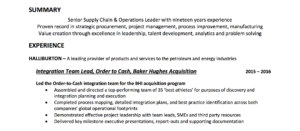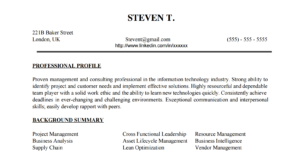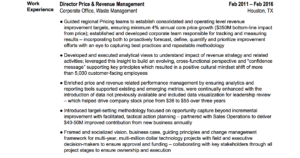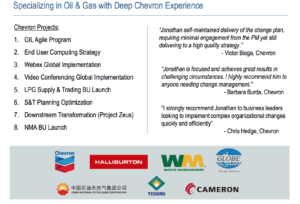What We’ll Cover in This Piece:
- Size of the consulting and staffing industry – and why it’s experiencing explosive growth
- How this industry growth benefits you
- How to thrive as a modern consultant/contracto
Estimated Time to Read: 5-10 minutes
We spend a lot of time telling people how big and broad the consulting and staffing industry is, because there’s a misconception that it’s a lucrative career path—for a small handful of people.
This assumption couldn’t be further from the truth.
The reality is, consulting and contracting is one of the biggest industries in the world, growing at breakneck speed. Everyone we tell this to asks the same two questions:
- How big is the consulting and contracting industry? Combine the net worth of the NBA, NFL, NHL, and MLB, and you’re looking at a value of $147 billion. The consulting industry is worth $425 billion—roughly 3 times as much!
- How fast is consulting growing? The U.S. Bureau of Labor predicts the consulting industry will grow 6% in total over the next 5 years, exceeding $450 billion. They’re wrong. Consulting and staffing will grow at least twice that fast.
The reason for this explosive growth is simple:
In the very near future, nearly all professionals will be consultants or contractors.
If you understand what is powering this change, how you can benefit from it, and how you need to navigate the new market, then you can position yourself to take advantage of the greatest opportunity of your professional life.
What’s Behind Consulting’s Explosive Growth
On a very basic level, the reason for the growth of the consulting industry is simple: companies need more consultants and contractors, in a wider variety of roles, than ever before. This is true and obvious to anyone in the corporate world.
However, to really understand the pace at which the consulting industry is growing, you need to understand a greater economic trend.
For the last 70 or so years, your professional career was defined by your company. You started off at an entry level position, and worked your way up.
You didn’t trade services for money, you traded time. Your company signed you to a full-time deal, gave you a salary, and you gave them your time in return. This model worked very well for a long time, and helped create a lot of America’s prosperity in the 20th century.
But that same model has stopped working for companies for a number of reasons:
- The pace of change has accelerated. It is well known that business moves faster now than at any time in history – and this is only increasing with new technology and evolving market forces. Companies need much more flexibility and nimbleness to be able to adapt and thrive.
- Bloated workforces cripple a company’s finances. With the traditional full-time model, companies cannot expand and contract to meet demand. A company’s workforce, and therefore personnel costs, remain static while their revenue fluctuates.
- Firing full-time employees is expensive. One of our clients recently had to let go of over 1,000 employees. Each of those employees received 12 months of salary as part of their severance package. That high price tag makes it very hard for companies to be flexible and adapt their workforce to their needs.In order to achieve the adaptability that the traditional full-time employee model prevents, companies are turning to flexible workforce solutions, or FWSs. These are solutions that run most of a company’s operations through a team of contractors or consultants, while a small core of full-time employees oversees the entire company.
Workforce of the (Not So Distant) Future
This transition is changing the makeup of the workforce. Companies in the near future are going to have very few full-time employees, but will in turn need access to a lot of consultants.In turn, professionals who today are full-time employees at different companies and firms are almost all going to be private contractors or consultants.
How The Growth of Consulting & Contracting Benefits You?
The growth of the consulting and staffing industry benefits everyone, and even if you aren’t currently a contractor, you probably will be very soon.
There’s some common confusion around what a consultant or contractor actually does. Most people hear the term “consultant” and think of management consultants – the consultants who are paid for high-level strategy and analysis.
Only 5% of consultants are hired to do that sort of high-level strategic planning. The other 95% are hired to execute in specific roles, from overseeing an entire project, to basic administrative and accounting work.
As a modern professional, this means you’re either currently a contractor or you will be in the future. In both cases the growth of this industry affects you. And if you prepare right, it benefits you tremendously.
1. Current Consultants Are About to Earn More
The math is simple. Companies are shedding their full time workforce, and thus will need more consultants and contractors than ever before. The increase in demand means more jobs and better pay.
Why better pay? The main reason is supply and demand. Consulting and staffing firms simply cannot hire quick enough. I see this even at my own consulting firm. I have far more work than I have quality consultants to give it to, and I spend a large percentage of my time looking for talented new consultants to bring onto my staff.
2. Future Consultants Will Be Able to Jump Right In
The widespread adoption of flexible workforce solutions is opening up consulting and contractor positions in a variety of roles. Whatever profession you work in, some company is going to need a consultant or contractor with your skills and services.
Technology is also making it incredibly easy to find work as a new consultant. Using services like BenchWatch, you can profile your skills and put yourself on the radar of a multiple companies immediately, ready to be hired.
Instead of building a network slowly over years, you can make yourself easily discoverable to anyone who requires your expertise.
But regardless of whether you’re a future or current consultant, this rosy future relies on one thing: Your ability to navigate modern technology and the current employment market.
How to Thrive as a Modern Consultant/Contractor
Success as a professional used to come down to working your way into a good company, and grinding your way up the ladder for 30 years. It was that simple.
Those days are coming to a close. As I talked about before, the lifelong job is over. As a modern consultant or contractor, your success is contingent on two things: positioning and visibility.
1. How to Position Yourself as a Consultant or Contractor
Positioning yourself as a consultant or contractor is about narrowing down your particular field, and proving that you are the expert in it. There are three steps you need to take to do this right:
- Define your niche. A lot of consultants and contractors struggle with this. They want to show clients they’re the best at everything. The problem is, no one is the best at everything, but everyone can be the best at something. Figure out what that something is for you.
- Build your resume. This doesn’t just mean pick a pretty template and list all of your jobs. Be very specific about listing the skills, experience, and references that apply directly to your niche and give you an advantage over your competition.
- Update your LinkedIn. These days, potential clients are going to look at your LinkedIn before they ever ask to see a resume. LinkedIn lets you make your expertise a matter of public knowledge, and its endorsements give a level of social proof that will help you.
Once you’ve positioned yourself as the expert in your niche, it’s time to make yourself visible to the entire market.
2. How to Maximize Your Visibility
Whereas positioning is about building up your profile with credentials and endorsements, visibility is about projecting that profile out into the world. You need to do two things to make yourself visible in the modern consulting and staffing market:
- Register with Consulting and Staffing Firms. There is no easier way to get hired than to show consulting and staffing firms that you are available. BenchWatch and other systems like eRecruit and Bullhorn make this easy for you. Firms manage their database of consultants using these systems – and if they can easily see that you are available with the right skills, they will present you to their clients.
- Set up a personal website. Having your own website outside of LinkedIn or any other social platforms gives you complete control of how you present yourself, and it showcases a higher level of professionalism. It’s also incredibly easy to do with services like Squarespace.
There are other things you can do to increase your visibility. You can write a book, produce content, attend meetups, and much more. All of those things, however, take a big commitment of time and money.
Why Trust Will Always Be at The Core of Hiring
While almost everything about the consulting landscape is changing, one thing isn’t: trust.
Trust will always form the foundation of any professional relationship, whether the relationship involves full-time employees or consultants/contractors.
As the demand for consultants and contractors explodes, so too does the pool of available talent. Companies simply don’t have the resources to sift through all the consultants and contractors in the market and build relationships with the very best. They need a trust agent to help them figure out who they can rely on.
As a consultant or contractor, you need to find the channels and institutions that your potential clients are using to find people they can trust. Connecting with these trust brokers is going to be the key to your success. For the foreseeable future, advanced staffing firms are those brokers of trust. Powered by technology like BenchWatch, eRecruit, Dynamics, and Bullhorn, they are the only way companies can hire trustworthy consultants at scale.







